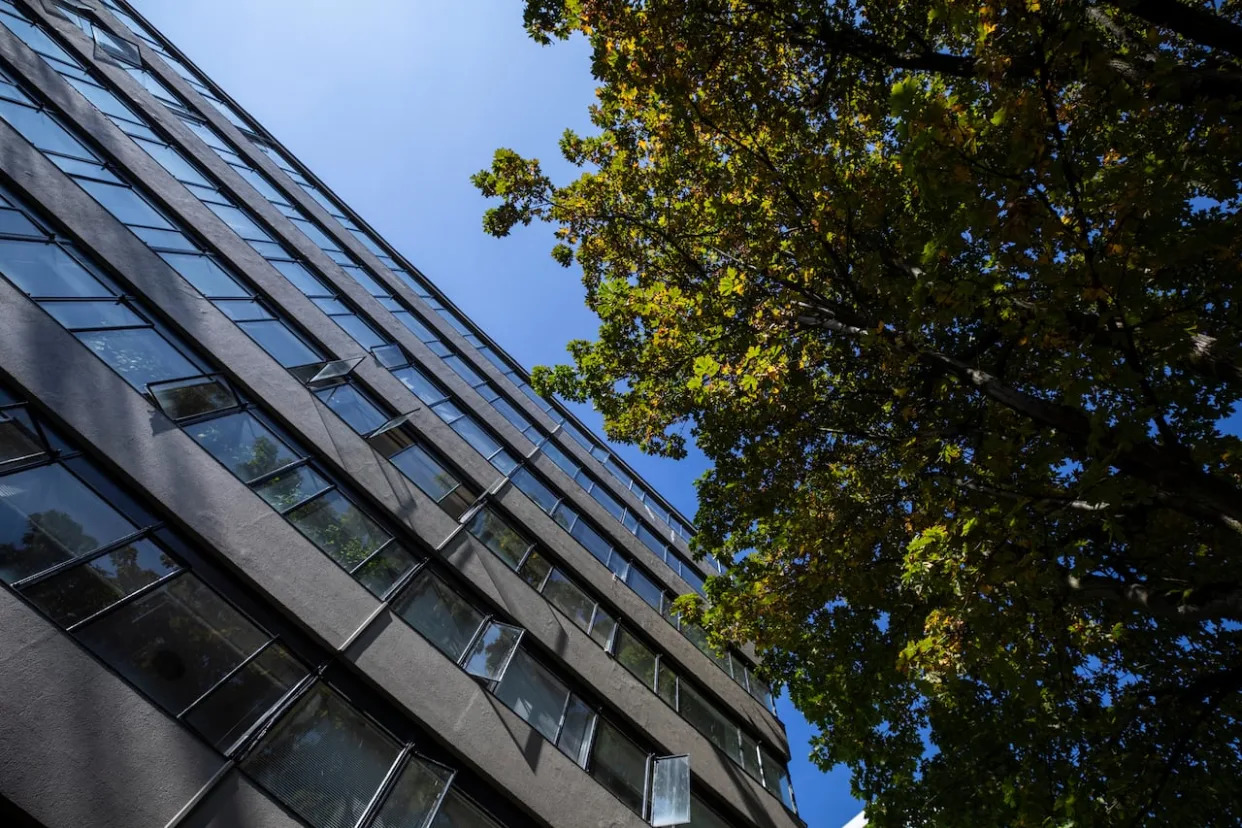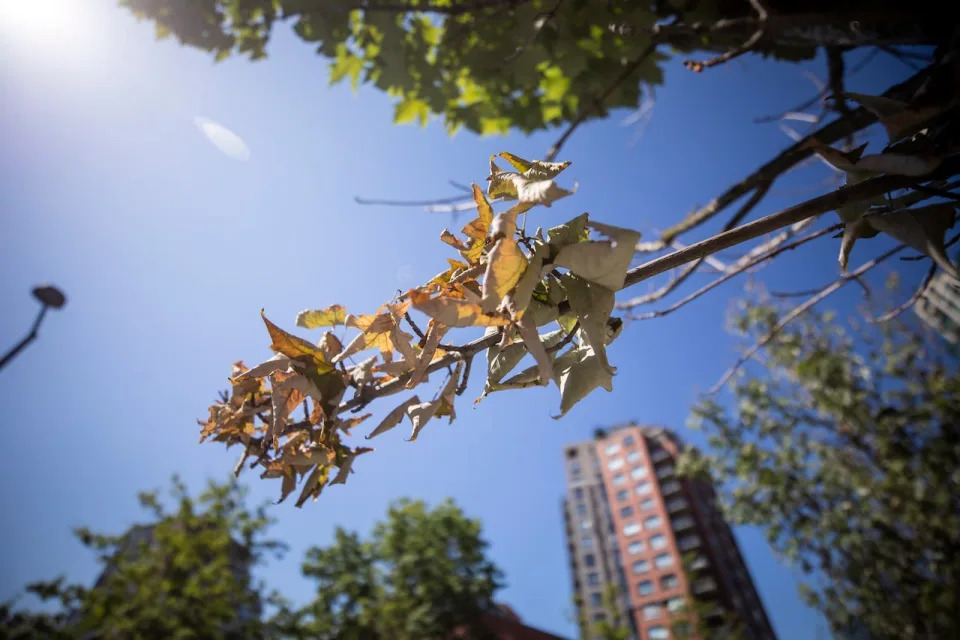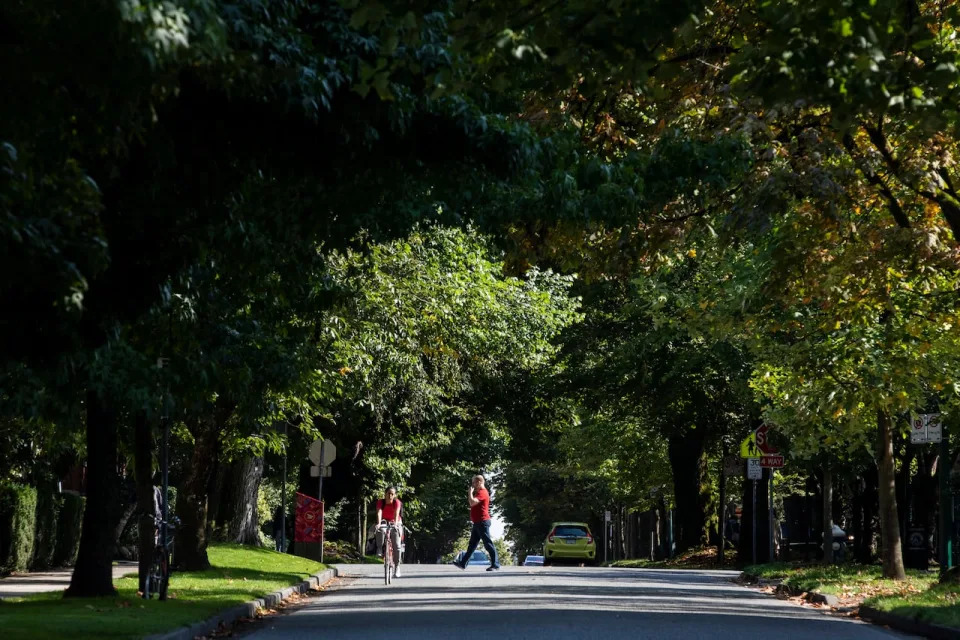CANOPY IS AN ECOLOGY OF BIRDS AND MAMMALS
CBC
Sat, April 27, 2024

A new report from Metro Vancouver says the pace of development across the region will most likely shrink its tree canopy cover, despite a goal to increase it to 40 per cent by 2050. (Ben Nelms/CBC - image credit)
A report presented to the Lower Mainland's regional government on Friday says leafy, tree-lined neighbourhoods are under threat from increased growth and intensification as cities face pressure — including requirements from the provincial government — to build vast amounts of new housing.
Tree canopy in cities — the amount of ground covered by leaves and branches as seen from above — is one measurement of the overall livability in municipalities. They can keep an area cool, sequester carbon and suck up storm water, meaning they're a tool to help guard against climate change and keep residents healthy.
A new report from Metro Vancouver, which uses data from 2014 to 2020, says in 2020 Metro Vancouver's tree canopy across its 21 municipalities, one electoral area and one treaty First Nation was 31 per cent, a one per cent decrease from 2014.
In contrast, impervious surfaces in the region, such as roads, increased from 50 per cent in 2014 to 54 per cent in 2020. Impervious surfaces are associated with higher temperatures, increased flood risk and poor water quality.
The report illustrates how municipalities are grappling with ways to stay green and protected from climate change, while at the same time developing land for housing, especially now that the province has introduced legislation to speed it up.
Further losses expected
Some cities have increased their canopies, through tree planting and other programs or policies. But most experienced loss between 2014 and 2020, according to the report.
"Yes this is an issue that is obviously concerning all of us," said Vancouver city Coun. Adriane Carr at Friday's Metro Vancouver board meeting.

Trees along Pacific St. are pictured losing their leaves in the hot weather in Vancouver, British Columbia on Monday, July 5, 2021.
Trees along Pacific St. are pictured losing their leaves in the hot weather in Vancouver, British Columbia on Monday, July 5, 2021. (Ben Nelms/CBC)
Metro Vancouver said its members have shared concerns about limited space for trees in cities and young trees dying during droughts.
"Even if there is replanting through redevelopment, the maintaining of those trees, once planted, is not necessarily a requirement — and they often fail and then they're not replanted," said District of North Vancouver Coun. Lisa Muri at the meeting Friday.
Over the past year, the provincial government has pushed legislative changes that take aim at single-family zoning and sets minimum requirements for building heights and densities that municipalities must allow.

Metro Vancouver planners say Vancouver's West End is an example of a healthy tree canopy in a high density neighbourhood.
Metro Vancouver planners say Vancouver's West End is an example of a healthy tree canopy in a high density neighbourhood. (Ben Nelms/CBC)
The report says development, such as that in single-family-home neighbourhoods with a significant amount of trees, is expected to affect long-term canopy goals.
Without accounting for the new provincial legislation, the report said that over the next 20 to 30 years, as housing is built on undeveloped land and single-detached housing stock is redeveloped, the tree canopy cover across Metro Vancouver is projected to decrease from 31 to 29 per cent.
The regional government hopes to reverse this trend by helping communities understand the importance of trees and offering tools to come up with policies and strategies to retain and add them.
"With the implementation of progressive tree retention and urban forest expansion strategies, it is possible to offset these losses," said the Friday update to the board.
The tree canopy in Metro Vancouver is assessed once every six years, meaning the next round of data is expected to be collected in 2026, with reporting in 2028, two years quicker than the most recent report, said staff.
No comments:
Post a Comment